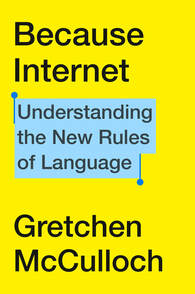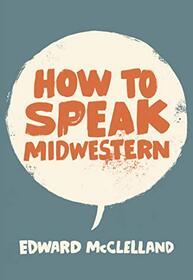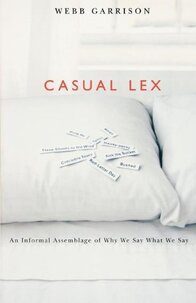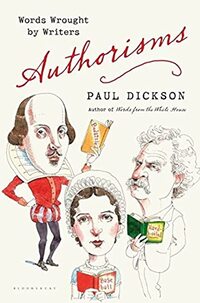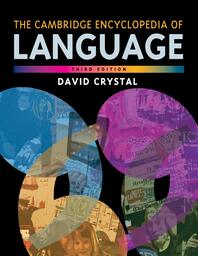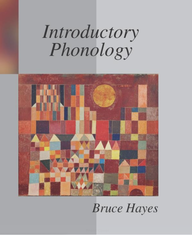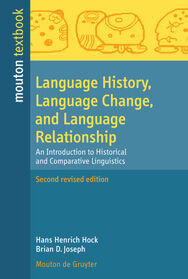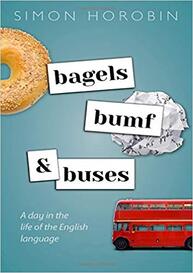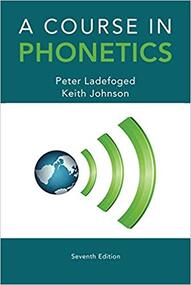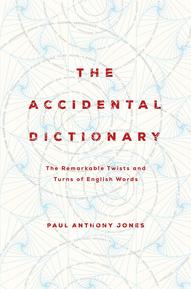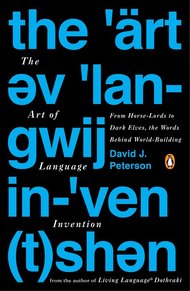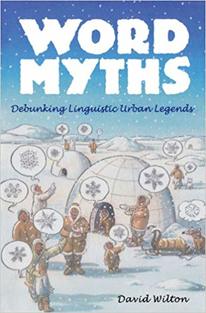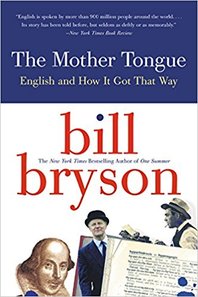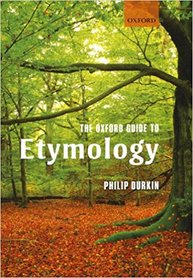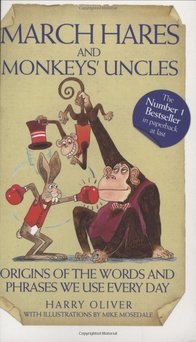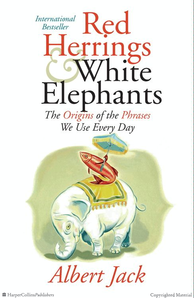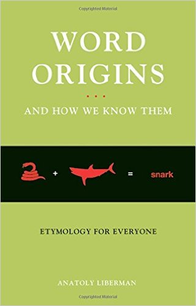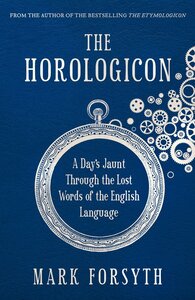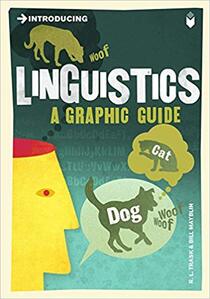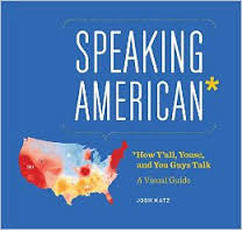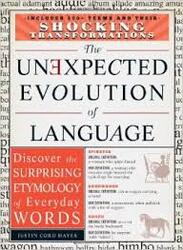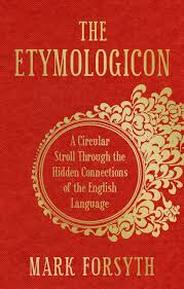BECAUSE INTERNET: UNDERSTANDING THE NEW RULES OF LANGUAGE
|
BY GRETCHEN MCCULLOCH
I knew this book would be good because it was recommended to me by XKCD creator Randall Munroe, and I was not disappointed. Because Internet fills a unique niche in pop linguistics by introducing a fascinating perspective on how digital media has shaped the development of language. As a "Post Internet Person", I often found myself evaluating the choices I made while texting or typing and analyzing the writing styles I encountered in different online contexts. McCulloch's explanations bring attention to curious tidbits that were previously hiding in plain sight, like why lol looks more natural than LOL, or why we use emojis the way we do - and it's all written in an engaging, simple way that anybody can enjoy and understand. If you want to entirely change your outlook on the modern evolution of language, I enthusiastically recommend this book! |
HOW TO SPEAK MIDWESTERN
|
BY EDWARD MCCLELLAND
After reading Katz's Speaking American and making several friends from the Midwest, I became increasingly interested in the dialectal differences between different regions of the United States. This book really allowed me to dive down that rabbit hole. In How to Speak Midwestern, McClelland describes the linguistic quirks of three different Midwestern dialects, and then provides an extensive glossary for all the major cities in those areas. It might be a bit exaggerated at times; I polled my Michigander and Wisconsinite friends as I read it and they were only familiar with about three quarters of the words they allegedly use. However, if you keep in mind that the content does not apply uniformly to the people of those regions, you can get a really cool picture of how English has developed in the Midwest. An informative, fast read - I approve. |
CASUAL LEX
|
BY WEBB GARRISON
This is a pretty standard etymological compilation book: that is to say, I thoroughly enjoyed it, but it didn't particularly stand out from the rest of the pack. Much like The Accidental Dictionary or The Unexpected Evolution of Language, Casual Lex goes through an alphabetical list of words and phrases with interesting origins, and then devotes a few paragraphs to explain each one. It's the kind of book you can pick up and put down at your leisure, and it gave me a lot of good ideas for blog posts, from teaching me that loopholes used to be castle defenses in medieval times to surprising me with the fact that the word tawdry is an alteration of the phrase St. Audrey's lace. As the title implies, if you're looking for a light, informal book, then this is it. |
AUTHORISMS: WORDS WROUGHT BY WRITERS
|
BY PAUL DICKSON
This is the only book I've encountered that focuses exclusively on words coined by writers (and it's extra special because it's written by the author who coined the word demonym!). Much like The Accidental Dictionary or Casual Lex, it features an alphabetical list - in this case covering everything from abricotine to zombification - and short explanations for the selected etymologies. It's a versatile format: you can read it in one sitting, or just flip open to a page, read a snippet, and set it back down. The writing style is engaging and pleasant. This gave me a lot of ideas for blog posts and was personally very interesting to me because it was a refreshingly new perspective in the greater etymology compilation genre. |
THE CAMBRIDGE ENCYCLOPEDIA OF LANGUAGE
|
BY DAVID CRYSTAL
I have a slightly older version of this, but it's served me exceedingly well. The Cambridge Encyclopedia of Language is an extraordinarily useful reference book that covers just about every linguistic topic imaginable, from the spread of Sino-Tibetan languages to where in the mouth certain sounds are articulated. I've used this on several occasions to contextualize my research when it leads me to fields of linguistics that I know less about, and it provides the perfect amount of information (going further than Wikipedia does, without a ridiculous amount of detail). David Crystal is a pioneering linguist who clearly knows how to write good, simple, informative nonfiction. I recommend this to anyone looking for a language encyclopedia. |
INTRODUCTORY PHONOLOGY
|
BY BRUCE HAYES
This was required reading for the phonetics portion of my introductory phonology class in college. I suppose it was as good of an introduction to feature matrices and phonemic analysis as one can get, although it was at times a little confusing and is best supplemented with information learned from a professor. It's certainly not casual reading, but if you're looking for something to teach you the fundamentals of phonetics and distinctive features, this'll do it. If you have to read it for school, I definitely recommend outlining and rereading to fully absorb the material. |
LANGUAGE HISTORY, LANGUAGE CHANGE, AND LANGUAGE RELATIONSHIP
|
BY HANS HOCK AND BRIAN JOSEPH
This book was the basis for my favorite class in my freshman year of college. It is a textbook - so not casual reading - but I could see this being used for self-study, much how I used Durkin's Oxford Guide to Etymology. Hock and Joseph provide, in an easily understandable writing style, a comprehensive introduction to etymology, with a primary focus on Indo-European languages. There's a heavy emphasis on sound change rules, which is really useful if you particularly want to learn how to reconstruct languages, and the first two chapters were useful for deepening my knowledge of how today's writing systems and Indo-European language families came to be. I recommend it if you really want to absorb yourself in etymology at an academic level. |
BAGELS, BUMF, AND BUSES
|
BY SIMON HOROBIN
Bagels, Bumf, and Buses is like a better version of Mark Forsyth's The Horologicon crossed with one of the books from the Red Herrings and White Elephants series - essentially a very entertaining etymological journey through the things you do every day. Starting with the fact that the word alarm comes from an Italian phrase meaning "to arms" and ending the Urdu origin of pyjama, Horobin takes the reader through a veritable bombardment of fun facts about quotidian words that secretly hide fascinating stories. I personally greatly enjoyed reading this: I got a lot of future blog post ideas out of it and I really liked how you could simultaneously treat it as a coffee table book to read every so often and as a rabbit hole to get lost with (which I did, frequently). This is good for both people new to linguistics and experienced etymologists, because there's nothing technical about it but there's something to learn for all levels - I definitely recommend it. |
A COURSE IN PHONETICS
|
BY PETER LADEFOGED AND KEITH JOHNSON
I had to read this for my phonology class and it was actually quite enjoyable. The authors convey complex information pretty well, although there are some spots where it can get sort of confusing to a new phoneticist. It's actually really fun trying out the sounds described in the book (I don't recommend doing that in public places, or you'll get weird looks) and the diagrams concisely summarize all the most important information. A Course in Phonetics helped familiarize me with the International Phonetic Alphabet and the foundations of acoustics, which is what I was hoping for, but if you want to learn some phonetics without literally reading a textbook, it's best to go with something lighter like The Art of Language Invention. Nonetheless, it's a relatively fast read, well organized in its structure, definitely engaging, and I would encourage diving into it if you think you're interested in the topic. |
THE ACCIDENTAL DICTIONARY
|
BY PAUL ANTHONY JONES
The Accidental Dictionary is very similar to many of the other etymology books out there: in an alphabetical format, it cherry picks some of the more interesting word origins out there and then gives a detailed explanation. As such, I've already encountered most of these etymologies in those similar books, but this certainly provided a few new ones for my blog. Paul Anthony Jones is also a language blogger, so like all of us definitely do (*cough*), he has an entertaining writing style and the book was never boring. This could also serve as a good coffee table book, since you can open to a random page, read the short passage on a particular word, and be able to put it down and resume at any time. Some of the factors that distinguish it from books like Red Herrings and Casual Lex are that the explanations are often much more detailed, the format is slightly different, and there is often a citation of the word in a previous historical context. Definitely a recommended read. |
THE ART OF LANGUAGE INVENTION
|
BY DAVID PETERSON
I found this in a New Haven bookstore and spent a delightful hour reading it in a Yale courtyard while listening to a carillon concert. Written by the guy who created the Dothraki and Valyrian languages for Game of Thrones, as well as several other artificial tongues for science fiction, The Art of Language Invention takes you on a whimsical journey through the process of conlanging, or the development of fictional languages. There's a lot more to it than you would think at first: you need to create tenses, conjugations, phonetics, orthography, syntax, and so much more. Because so many different aspects of linguistics are covered, it can also serve as a really good introduction to the field for beginners. I really ended up developing a deep appreciation for the whole conlanging community upon finishing, and it inspired me to make some of my own conlangs. Highly recommend! |
WORD MYTHS: DEBUNKING LINGUISTIC URBAN LEGENDS
|
BY DAVID WILTON
This guy knows what he's talking about. It's far too common, these days, to run across an etymology that's completely bogus (in my personal experience, most of these have been acronyms and naval terms). In his very well-written book exposing these inaccuracies, Wilton not only identifies the urban legends, but discusses how they spread and the reasons behind the propagation of urban legends in general (and he cites his sources, unlike the stories he writes about). This is especially applicable in the age of the Internet, when falsehoods go viral with very little time to be refuted. Word Myths will help you be able to locate the sources of linguistic B.S. and understand why they evolved the particular way that they did. One great upside of this book is that, through the explanations of the correct origins behind phrases, you actually learn a bunch of interesting etymologies, some of them cooler than the myths themselves. |
THE MOTHER TONGUE: ENGLISH AND HOW IT GOT THAT WAY
|
BY BILL BRYSON
I chose to read this for a high school project, and I had an overall positive opinion of it. Bryson has an engaging style - slightly self-deprecating and circuitous, but informative. While there are actual etymologies in the book, this focuses more on how English came to be, as the name suggests. Bryson methodically approaches this, going from the highly muddled and theorized origin of language itself to the well-researched infusion of classical words and subsequent vowel shift during the Renaissance. To me, this seemed like an interesting pop linguistics book to dive into, but apparently a substantial number of reviewers claim that it contains a lot of inaccuracies. I can't comment on that, so I would recommend that you approach this with some reservations. |
THE OXFORD GUIDE TO ETYMOLOGY
|
BY PHILIP DURKIN
This, the last etymological book I could get on my Kindle, was a mixed blessing. Out of all the books discussed on this site, it offered the most in-depth and comprehensive explanation of what etymologists do and how they do it, and thoroughly dives into the origins of some words. However, it was also incredibly boring! I kept having to put this down for less yawn-worthy reads. Admittedly, I think it was meant as a textbook, and I don't think they expected some high school kid to read it in his free time. And, really, shining through its soporific moments are some real insights into the world of linguistics, philology, and etymology. This is no Anatoly-Lieberman-style "etymology for everyone"; it's an extremely extensive etymological introduction and I would only refer it to people who are seriously into the subject. That disclaimer being out of the way, it was super informative! You should get it! |
MARCH HARES AND MONKEY'S UNCLES
|
BY HARRY OLIVER
Apparently Red Herrings and White Elephants was so popular its publishers hired another guy to write a sequel. The author is clearly an Englishman; he spent more time on Anglicisms than American phrases, and I only knew about half the phrases. However, the content was great and gave me a bunch of ideas for blog posts, much like its sister book (to which it can serve as a good supplement). Once again, the format is refreshingly maneuverable: organized by topic in the main text and then categorized alphabetically in the back. One minor qualm I had with this (and, come to think of it, this applies to Red Herrings too) is the lack of in-depth etymological explanations. It quickly tells you how each phrase traces to the nearest language, but doesn't go any further than that. I recommend reading this only if you already read and enjoyed Albert Jack's book. |
RED HERRINGS AND WHITE ELEPHANTS
|
BY ALBERT JACK
Red Herrings and White Elephants, a chance find for me in a Hanover, NH bookstore, is a brilliant go-to guide for phrase origins. It's cleverly organized first by topic of phrase origin and then alphabetically in the index, so you can use it pretty effectively as an informal reference, or just simply browse through it. I often find myself returning to this and March Hares to leisurely flip through the pages until I find a phrase that interests me, and then reading the explanation for that. Like the Etymologicon or The Unexpected Evolution of Language, this is diachronic linguistics at its finest: a pleasurable read for everyone, from professional linguists to people more casually interested in learning some cool trivia. I got several interesting blog post ideas from these pages, and didn't feel bored at any point. A good read! |
WORD ORIGINS AND HOW WE KNOW THEM
|
BY ANATOLY LIBERMAN
What an informative book! Anatoly Liberman's fascinating masterpiece brings the science of philology and etymology to the masses. I would note that it's not as accessible as a book like The Etymologicon; a lot of advanced topics are covered, and you may find it boring unless you really want to know more about linguistics. That being said, this book is amazing. It differs from many other etymology books here in that it doesn't just say cool tidbits about word origins, but goes in depth to explain how etymologists identify them. Liberman covers in the span of 18 chapters everything from reconstruction to folk etymology and sound symbolism, and this really reinforces and builds up one's knowledge of the exact science behind etymology. It was definitely an important step for me in my etymological self-education. |
THE HOROLOGICON
|
BY MARK FORSYTH
Strictly speaking, this isn't really an etymology book: it's a book about obscure words (like Horologicon, which spell-check insists does not exist). There are others like that, but The Horologicon is unique in three respects. Firstly, it provides more substantial etymological explanations than the other obscure-word books I've seen. Secondly, it's organized on a daily schedule routine, starting with words pertaining to alarm clocks and ending with ones to do with midnight (this chronological order gives it a sort of logical flow). Finally, it's written in Forsyth's infectiously curious style - that of a skilled author and etymologist. I'd recommend you read The Etymologicon first, which I enjoyed slightly more, but definitely give a thumbs-up to this vocabulary-expanding adventure. |
INTRODUCING LINGUISTICS: A GRAPHIC GUIDE
|
BY R.L. TRASK AND BILL MAYBLIN
Though the name sounds promising, you could probably get a better book. Since, at the time, I knew a bit about etymology but not enough about other fields of linguistics, I chose this book to get acquainted with the topic. Though it covered the basics decently, I was generally disappointed. The "graphics" in this guide are little more than historical pictures with copy-and-pasted speech bubbles over the people's heads, and the writing is subpar. I was expecting engaging content and some well-designed, original material in the illustrations, so lack of those really soured me on the Linguistics: A Graphic Guide. If you want an introduction to linguistics, there are many better-written books to turn to, and you should get this only if you really need a graphic component to help you learn. |
SPEAKING AMERICAN
|
BY JOSH KATZ
Ever gotten annoyed when someone says aunt or pecan differently from you? This fantastic coffee table book for graphically-oriented people explains why. Half beautifully designed infographics, half text, this is an easy read for fans of the English language at any level. Speaking American shows the dialectal differences of different regions of the United States through wonderful, vivid maps, while blurbs on the sides explain the etymologies of the selected words. If you're familiar with the New York Times dialect quiz, it's basically the print version of that, but a little more in depth. Another enthusiastic recommendation! |
THE UNEXPECTED EVOLUTION OF LANGUAGE
|
BY JUSTIN CORD HAYES
This book isn't as good for beginning etymologists as Forsyth's The Etymologicon, solely because this has more of a dictionary format than a book one, which may be boring and off-putting to people who don't like that kind of stuff. However, if you can get past the organization of it, or if you just choose to use it as a coffee table book, The Unexpected Evolution of Language has the potential to be surprisingly engrossing. Starting with the word aback and going alphabetically for just under 300 pages, Hayes takes a bunch of words that underwent interesting changes in definition and explains how they developed into what they are today. Going through this work, you'll find yourself stunned by all the interesting tidbits, and you'll never look at language the same way again. |
THE ETYMOLOGICON
|
BY MARK FORSYTH
I found this book while roaming through a Cambridge, UK college bookstore and it changed my life. It's what got me into etymology and was such an absorbing read that I wrote my common application essay on it. Starting from the word book after an interesting preface, Mark Forsyth takes the reader through a roundabout explanation that displays how that word is etymologically correlated to chicken, followed by how the word chicken is connected to the word gene, et cetera. Through some stunning loops, intricate connections, and surprising stories, the audience is shown the links between buffalo and magazine, turkey and heroin, islands and salt. You don't have to be an English teacher to like this; even if you're a random person casually perusing this blog to giggle at how some people have no lives, you should try The Etymologicon - you'll learn and you'll laugh, and I highly recommend it. |
MORE COMING SOON


